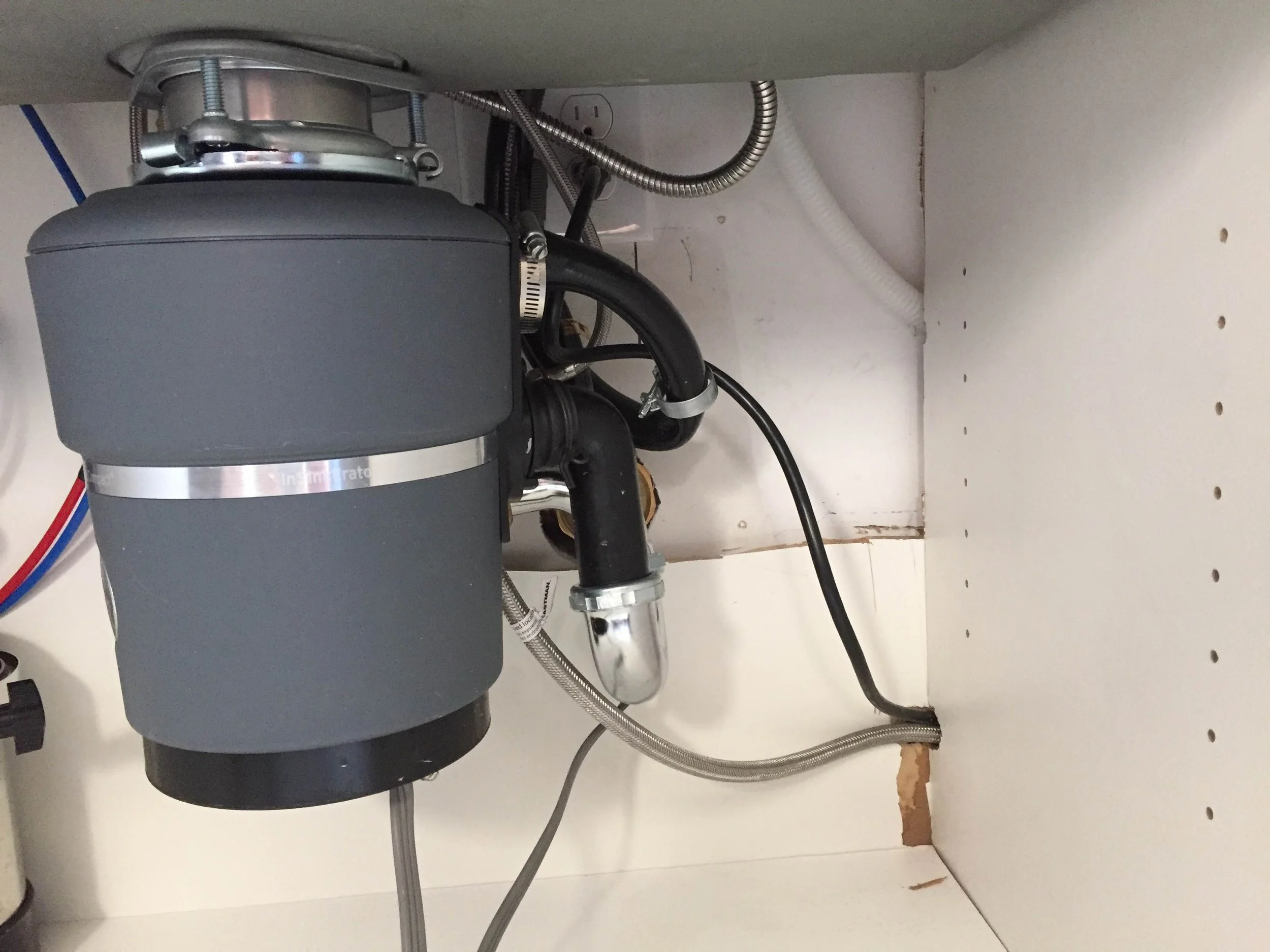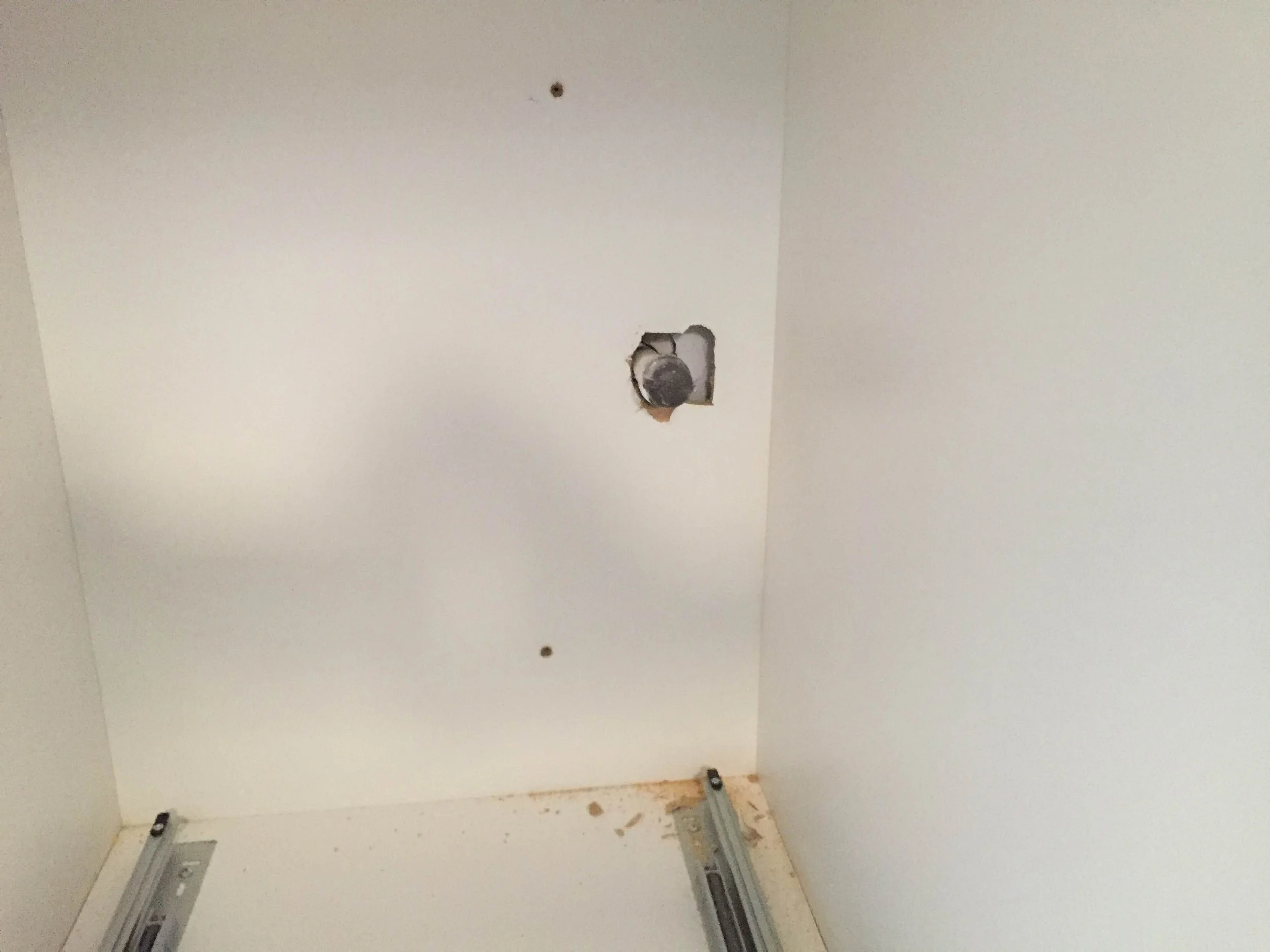How to Choose the Right Contractor for Your Remodel
By The Insider Studio
July 24, 2025
A remodeling project should be exciting—not a stressful ordeal. The right contractor can make all the difference, turning your vision into reality while keeping the process smooth and efficient.
The insights that follow are grounded in our extensive experience with kitchen and bath remodels, which often go far beyond simple cabinetry. These projects often include moving walls, relocating windows, and upgrading plumbing and electrical systems. Set apart from the rough work of structural remodeling, cabinet installation requires a very specific skill set. Precision and experience are essential to ensure a seamless fit and finish. Improper installation can result in gaps, misalignment, and costly delays, so choosing a contractor who values cabinetry craftsmanship is crucial.
As cabinetry experts, we’re often involved in a variety of interior projects where thoughtful design, functionality, and coordination across trades are key.
If you're planning a full home renovation or something outside our primary scope—such as extensive exterior work, or multi-story additions- additional considerations may come into play, such as phased permitting, structural engineering reviews, or specialized trades coordination.
Still, the fundamentals of trust, fit, and clear communication apply to any scale—and that’s where we begin.
Here’s how to find a pro who delivers.
Start with First-Hand Recommendations
Nothing beats seeing a contractor’s work up close. If you visit a friend, relative, or neighbor’s beautifully remodeled home, ask who did the work! A trusted referral can save you time and point you to a contractor with a proven track record.
Trusted Referrals for a Seamless Remodel
We’ve built strong relationships within our industry, and when we provide a contractor referral, it’s based on experience and trust. Our network continues to grow and evolve as we meet new, talented contractors—often introduced to us by clients—while others naturally rotate out over time. While many believe in gathering multiple bids for a project, we take a different approach—we limit referrals to the contractor best suited for the job.
Here's why this benefits everyone involved: 1. We confidently recommend someone who will deliver excellent results. 2️. We trust them to price their work fairly, reflecting not only their workmanship but also their ability to anticipate challenges and prevent costly surprises down the road. *That said, renovations often uncover unforeseen discoveries—such as outdated electrical wiring hidden behind walls or structural issues masked by prior repairs—that couldn’t have been anticipated from the outset. Our contractors are experienced at navigating these surprises efficiently, with transparency and thoughtful solutions that keep your project on track. 3️. By carefully matching our clients with a contractor based on project complexity and budget considerations, we simplify the referral process—resulting in more accurate estimates, stronger commitments, and a smoother overall experience. 4️. Comparing quotes makes sense when you're dealing with unfamiliar options, but with a trusted referral, it’s about quality and reliability, not just price.
Of course, if the referral doesn’t feel like the right fit, we encourage open communication. Let us know your concerns, and we’ll help guide you toward another excellent contractor!
Key Questions to Ask
Before signing any contracts, dig deep: 🔹 Experience: How long have you been in business? Do you specialize in projects like mine? Do you have references from past clients? Can I see examples of your work?🔹 Licensing & Insurance: Are you properly licensed and insured? Can you provide proof? we highly recommend you review your contractor’s license to make sure they are in good standings here www.cslb.ca.gov 🔹 Budget & Timeline: What’s your estimate, and what factors could affect it? How do you handle unexpected costs and delays? 🔹 Change Orders: What is your policy around change orders? How are they communicated and approved, and at what point is pricing confirmed before work proceeds? What qualifies as a change order? [*Be cautious—some contractors secure bids by downplaying foreseeable costs, then use change orders later to increase profits. It’s crucial to clarify how changes are defined and handled to avoid budget surprises.]🔹 Subcontractors & Team: Who will be working on my project, and how do you ensure quality? Will I have a dedicated project manager/ direct source of contact? 🔹 Permits & Compliance: Do you handle permits? How do you ensure local building codes are met? 🔹 Communication: How will you keep me updated throughout the project—email, phone, in-person? 🔹 Post-Project Support: Do you offer a warranty? How do you handle follow-up issues? Will you provide documentation and receipts for materials used?
Why Contractor Quotes Vary (Read twice!)
Even with identical project specs, prices can vary significantly due to several factors: ✔️ Experience—Skilled contractors command higher rates, and those in high demand often charge more due to their reputation and workload. ✔️ Overhead—Larger firms have more expenses, impacting pricing. ✔️ Materials—Different suppliers = different costs. Some prioritize premium materials, while others focus on cost-effective options. ✔️ Scheduling—Rush jobs often cost more. ✔️ Risk & Profit Margins—Some contractors price higher to account for unforeseen issues, while others may quote low initially but introduce additional costs later.
It’s More Than Just Price
Beyond numbers, the right contractor should feel like the right fit. Consider: 💬 Trust & Communication—Do they listen and respond clearly? Do they take the time to process your requests, or do they jump to an immediate "yes" just to secure the job, only to figure things out later? On the flip side, do they push back too quickly or make every minor request seem like a big deal, signaling potential rigidity? 🛠️ Work Ethic—Are they organized, professional, and dependable? Do they stay committed to timelines and quality? 👔 Professionalism & Courtesy—Are they considerate of your space, offering to take off their shoes or being mindful of pets? Are they respectful of neighbors, avoiding inconveniences like blocking driveways? 🏆 Reputation—What do reviews and referrals say? 🤝 Gut Feeling—A contractor’s enthusiasm and willingness to go the extra mile can be great, but only if it’s backed by genuine expertise. If something feels off, trust your instincts and walk away.
Website or No Website?
A sleek website doesn’t guarantee great workmanship. Some top-tier contractors rely solely on referrals, so if a pro comes highly recommended, focus on their reputation and results—not just their online presence.
The Most Important Step: Be Honest with Yourself
Before choosing a contractor, ask: ❓ Am I being realistic about my budget? Hidden costs happen—am I prepared? ❓ Do I understand the timeline? Construction delays are normal—can I be flexible when they occur? Am I prepared to make timely decisions and payments to keep the project moving forward? ❓ Do I have a clear vision? Frequent changes frustrate contractors and throw projects off track. Once momentum is lost, it can be difficult—and costly—to rebuild, so staying responsive and proactive is key to avoiding unnecessary setbacks. ❓ Am I willing to trust their expertise? Micromanaging can create tension and delay progress. ❓ Am I choosing a contractor for the right reasons? Am I focused on the lowest bid simply because it’s cheaper, or does investing more to ensure quality, reliability, and long-term value make better sense given the scope and complexity of the project?
The Relationship Matters—A Lot A home remodel invites someone into your most personal space—often for weeks or months at a time. That’s why the relationship between homeowner and contractor should be treated like a partnership. You’ll be interacting frequently, navigating decisions together, and sharing both wins and setbacks. It’s important to work with someone you not only trust, but genuinely like having around. If you find the contractor’s communication style abrasive, their demeanor uncomfortable, or their presence disruptive, those feelings will only intensify over the course of the project. A smooth process relies on mutual respect, transparency, and a shared commitment to the end result—so don’t underestimate how important compatibility really is.
Red Flags: Spot a Bad Contractor Before It’s Too Late
To avoid costly mistakes, vet contractors carefully:🚩 Poor communication— Are they vague, evasive, cutting you off mid-sentence or slow to respond? If clarity and listening skills are an issue now, expect worse later. 🚩 Overpromising— Is their bid suspiciously low compared to others? Underbidding and unrealistic timelines often lead to poor quality or surprise costs. 🚩 References & Reviews— Do past clients rave about their work, or do they complain about delays, disappearing mid-project, poor craftsmanship, or hidden fees? 🚩 Contracts & Agreements— Most pros provide clear contracts, but some “Hands-On, Old-School Professionals” rely on reputation over paperwork. Encourage the latter to provide a simple document covering scope, deadlines, and payment terms —this not only provides peace of mind but ensures everyone is on the same page. Before going this route, speak to past clients who can vouch for their reliability and integrity, confirming that their word is as good as a contract.
Here are photos showing examples of unacceptable workmanship that led to clients firing their contractors:
The plumbing cut-out behind the sink is extremely rough and uneven, suggesting it was done in haste rather than with proper planning and precision. It's hard to believe this would pass as acceptable work.
Or how about this cut-out for a gas shut-off valve:
Or when a contractor’s drywall finisher fails to protect your cabinets, leaving them exposed to mud splatter and potential damage:
How to Protect Yourself
🔹 Check reviews, references, and past work before hiring. 🔹 Ensure they are licensed, insured, and bonded in your state. 🔹 Never pay the full amount upfront—use progress payments instead. 🔹 Trust your gut—if something feels off, walk away!
Final Thought: If It’s Too Good to Be True…
An incredibly low quote might come with hidden risks. If something feels too good to be true, it probably is. Choose wisely—your home deserves it!
Have you ever had a great (or terrible) experience with a contractor? What made them stand out? If you’ve remodeled before, what’s one thing you wish you had known beforehand? What’s the biggest red flag that would make you walk away from a contractor? 📅 If you’re planning a remodel, what’s the hardest part of choosing the right contractor? How many bids do you think are ideal before making a final selection and have you ever gotten just one?
Let’s hear your thoughts! Drop a comment below. 👇




